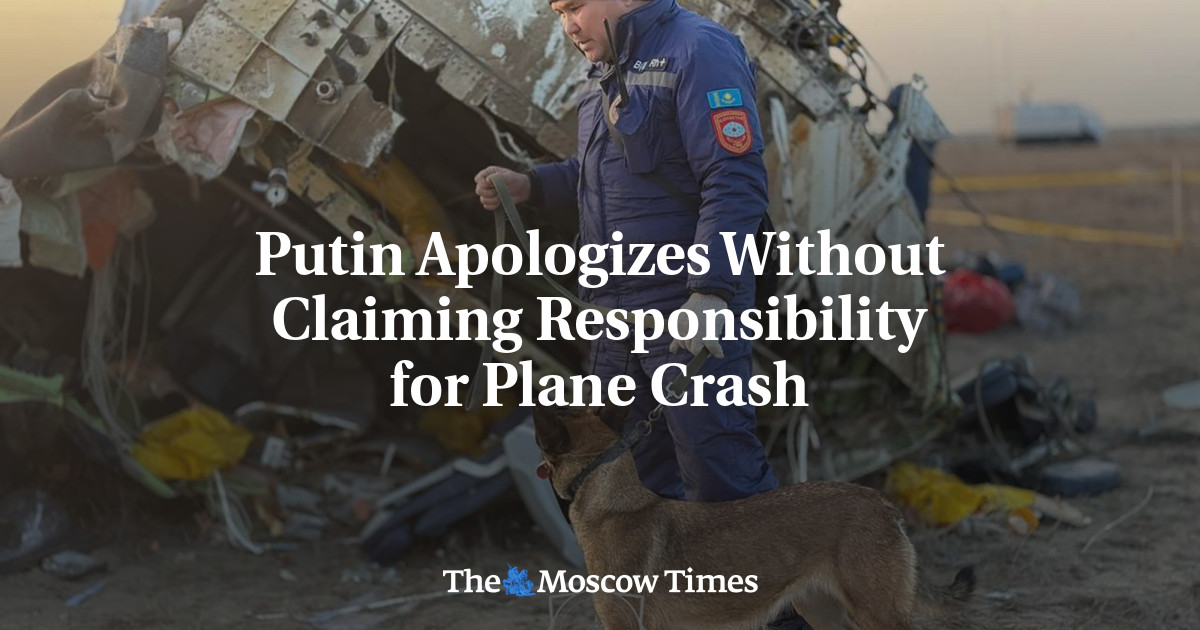The Russian State Duma has unanimously resolved to rescind Russia’s ratification of the Comprehensive Nuclear Test Ban Treaty (CTBT). The bill will now be sent to the upper chamber and then to President Vladimir Putin, who is expected to sign it into law.
Russian lawmakers and media figures have called for the country to carry out nuclear tests, and even launch strikes against European cities, since the start of the war in Ukraine. Putin acknowledged these calls in his speech at the Valdai Club this month. But his refusal to say whether there was any need to conduct new tests fueled concerns that Russia could use the threat of nuclear escalation to discourage Western support of Ukraine.
The decision has drawn international criticism, with the chair of the organization responsible for the treaty urging Russia to “consider a different path, one which reinforces global commitment to outlawing nuclear testing.”
But while experts have raised concerns that Russia is weakening the global consensus against nuclear weapons with its latest move, they also cautioned that it does not mean an immediate return to a nuclear arms race.
What does the CTBT do?
The multilateral treaty aims to outlaw all kinds of nuclear explosions. Not only does this prohibit the use and testing of nuclear weapons, but “peaceful” detonations used for civilian purposes like building canals.
The CTBT facilitates global surveillance of nuclear explosions via the International Monitoring System, a global network of stations that detect the seismic tremors, sound waves, and radioactive particles and gases they release. It also sets out the procedures for on-site inspections to assess suspected treaty violations.
Despite 187 countries signing the treaty since 1996, it has not come into force. The CTBT stipulates that 44 countries, all of which have some kind of nuclear technology, must ratify the treaty for this to happen.
Russia ratified the treaty in 2000. However, eight nuclear-capable countries, including China and the United States, have not.
Why is Russia withdrawing ratification?
The bill’s explanatory note explicitly blames the United States’ refusal to ratify the treaty for creating an imbalance of power that is “unacceptable in the current international situation.”
"For 23 years, we have been waiting for the United States to ratify this Treaty. But Washington did not do it because of its double standards, irresponsible attitude to global security issues," said State Duma Speaker Vyacheslav Volodin.
Applying pressure on the U.S. is also thought to be behind Russia’s decision to withdraw from the New Strategic Arms Reduction Treaty (New START), which reduced the cap on the number of nuclear weapons each country could have by 30%. Moscow claimed the treaty gave Washington an unfair advantage, as part of its pattern of blaming the West for increasing global instability.
Does Russia withdrawing its ratification mean we are in a new nuclear arms race?
Deratifying the treaty does not necessarily mean that Russia will resume nuclear testing. “If they wanted to, I think they would have withdrawn from the treaty completely,” Pavel Podvig, a senior researcher at the UNIDIR Weapons of Mass Destruction Program, told The Moscow Times.
Russia remains a signatory to the CTBT as well as the Vienna Convention on the Law of Treaties, which requires countries to abide by treaties they have signed regardless of whether they have ratified it or not.
Moreover, the bill says Russia will continue to abide by its obligations under the CTBT, including collecting data for the IMS. Thirty-two of the network’s 321 stations are on Russian soil. The country’s strategic location makes Moscow’s continued compliance especially important as it can detect potential tests in North Korea, China and Iran.
What does this mean for nuclear non-proliferation and the war in Ukraine?
The CTBT will likely never come into force. Washington and Beijing cooperate with the CTBTO, but neither has indicated they will ratify the treaty. Ratification from North Korea, India and Pakistan is also essential for the treaty to function, but none of these states are even signatories.
Despite this, it has helped establish a global norm in which nuclear testing is unacceptable. The only country to have carried out nuclear tests in the 21st century is North Korea. We know about that thanks to the CTBTO’s International Monitoring System.
Experts also say that there is an understanding among nuclear powers that if they resume testing, so will their rivals. “In the United States there is an understanding that it is better not to resume tests, as the benefits of doing so are questionable,” Podvig said. “If the U.S. resumes tests, so would Russia and China.”
There has been speculation about new satellite imagery showing construction around Russia’s Novaya Zemlya testing site. This does not necessarily mean new nuclear tests are being carried out.
“We haven’t seen activities near any of the tunnels that indicate more than the continuation of the ongoing sub-critical tests program,” said Frederick Hague, head of the Bellona Foundation, which examined the imagery. These tests are done to make sure weapons are still working without requiring an explosion.
Even if no new nuclear tests are imminent, Povdig and other experts have voiced concerns that withdrawing Russia’s ratification of the CTBT could mark a weakening of the global consensus against nuclear testing.
Despite bellicose voices from within Russia, Putin has said Moscow will only launch a nuclear strike if the country is threatened. Russia’s nuclear rhetoric can at times be aggressive. But while a risk of inadvertent escalation exists, analysts believe Moscow could be just as worried about the impact of a nuclear war as the rest of the world.
 (1).png)
 1 year ago
36
1 year ago
36













